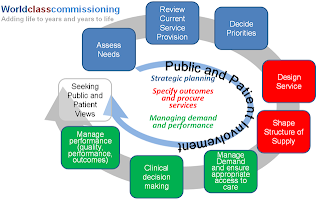This weekend I ran the Great North Run, self-styled "The world's biggest and most prestigious half-marathon" - I came in 8381st, which doesn't sound too good until you realise that nearly 52,000 people ran the run this year! Actually I think that's too many, as the course never stopped being crowded. For those interested, my race number is 23855 if you want to check my times on the web site. My page on http://www.justgiving.com/hugominney is still open for a month or two if you want to make a late donation!
Anyway, on a long run I find I have a lot of time to think.
In Public Service Magazine this month they report a What Matters survey about what motivates staff:
I absolutely agree. Nobody comes to work to do a bad job, but without the tools to plan ahead, to understand what will be needed and to plan staffing and workforce education to meet these needs, staff end up working harder and feeling frustrated, as dramatic changes in need catch them unawares.
That's where the Benefits Realisation work fits in.
It's a structured approach to planning ahead, very-much outcomes focussed but with the outcomes themselves focussed on what makes a difference.

World Class Commissioning exhorts us to Understand the Need, Understand Current Service Provision, and Identify Gaps. But quantifying needs in terms of "we have this many of this target group, and only enough provision for half that" only tells you half of the story. What you really need to know is not what you need to expand starting from here, but what would be the very best solution.
Kate Silvester, the OSPREY champion and leading light on systems change, says that at any time there's around 30% of waste that could be taken out of the system (muda spectacles); I've taken this to mean that the pace of change, of improvements in our understanding, in technology, and in the care possible, moves so fast that a system and care pathway perfectly designed to deliver care three years ago is now out of date to this extent. This means that doing more of what we were doing may not be the most appropriate answer, even though changing the whole system may not be the best answer (because of the disruption, and resources needed during the changeover period) either.
So what should you do?
Take a long run, say 1 hour, 53 minutes and 2 seconds, and spend some time thinking about it. No I jest.
Applying the benefits principles first espoused in ISIP (Integrated Service Improvement Planning), and expanded and matured in this blog and on http://minney.org/?q=Benefits_Framework">my web site will help you. Instead of simple, and somewhat uninspiring, numbers, you'll identify the human story and the benefits to staff (highly rated as a good reason to come to work), patient experience, quality outcomes (also highly rated) and the best investment of finite resources (sadly, what we all seem to think is our sole purpose in NHS).

No comments:
Post a Comment